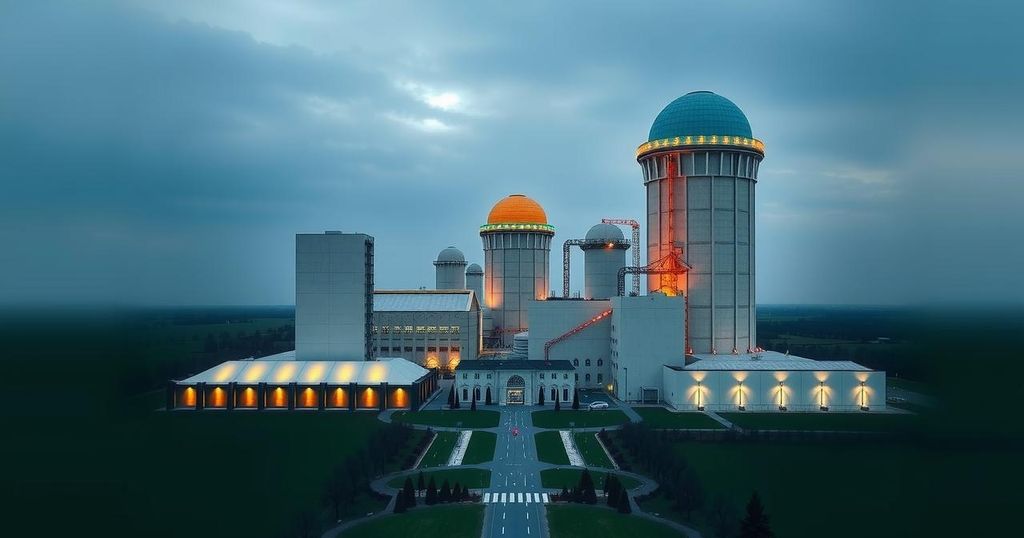Kazakhstan and Mongolia have signed a cooperation memorandum in the nuclear energy sector, following President Tokayev’s visit. The agreement emphasizes exploration of mutual mineral resources and the establishment of a strategic partnership. Kazakhstan is preparing for the construction of its first nuclear power plant, with international collaboration expected. Concurrently, the Asian Development Bank has approved a major loan to improve infrastructure, while Astana’s unique attractions continue to draw tourists.
Kazakhstan and Mongolia have officially entered into a partnership in the nuclear energy sector, as noted by foreign media outlets. This development follows a memorandum of cooperation signed on October 29, 2023, between Kazakhstan’s Ministry of Energy and Mongolia’s Nuclear Energy Commission, during President Kassym-Jomart Tokayev’s visit to Ulaanbaatar. During this visit, President Tokayev highlighted the resource wealth shared by both nations, indicating a collaborative approach towards exploiting mineral deposits such as iron, phosphate, bauxite, and rare minerals, instilling optimism among Kazakh entrepreneurs regarding the mining opportunities in Mongolia. Additionally, the signing ceremony initiated a broader strategic partnership, encapsulated in a Joint Declaration. This partnership was further reinforced during the inaugural meeting of the Business Council in Ulaanbaatar, where significant commercial agreements were crafted to enhance bilateral business relations. Moreover, Kazakhstan recently conducted a referendum regarding the construction of its first nuclear power plant, garnering support from over 70% of voters. President Tokayev has outlined plans to invite international partnerships in this initiative, with potential candidates including Russia’s Rosatom, China’s National Nuclear Corporation, South Korea’s KHNP, and France’s EDF. The engagement of organizations like the International Atomic Energy Agency aims to ensure rigorous oversight of this strategic project. Concurrently, a delegation from Kazakhstan’s Energy Ministry engaged in discussions in South Korea, focusing on nuclear power collaboration and other energy sectors, reinforcing Kazakhstan’s commitment to diversifying its energy partnerships. The Asian Development Bank (ADB) has also made strides in Kazakhstan, approving a loan of up to $291.49 million to rehabilitate a significant stretch of roadway. This initiative aims to improve connectivity and support economic growth, reflecting Kazakhstan’s strategic role at the crossroads of Asia and Europe. In tourism, Kazakhstan’s capital, Astana, continues to captivate visitors with its modern architecture and vibrant cultural scene. The city offers a unique blend of history and innovation, appealing to tourists with a penchant for extraordinary experiences. Key attractions include the Grand Mosque, the Baiterek monument, and the Nur Alem Museum, adding to Astana’s allure as a destination.
The recent memorandum between Kazakhstan and Mongolia signifies a significant step towards enhancing cooperation in the nuclear energy sector, reflecting broader geopolitical strategies involving the two nations. Kazakhstan’s strategic position as the world’s leading uranium producer and its ongoing discussions with various international nuclear firms demonstrate its pivotal role in global energy dynamics. Additionally, the emphasis on developing infrastructure, exemplified by the ADB’s substantial loan for road improvement, underscores the nation’s intent to bolster its connectivity and economic stature within the region. The tourism sector presents yet another avenue for Kazakhstan to showcase its unique cultural and natural heritage, particularly through its contemporary capital, Astana.
In conclusion, the cooperation agreement between Kazakhstan and Mongolia marks a decisive advancement in energy collaboration, with significant implications for international partnerships in nuclear power. Alongside strategic investments to improve infrastructure and enhance regional connectivity, Kazakhstan is positioning itself as a key player in the global energy framework. The country’s efforts in promoting tourism further enhance its profile, making it an attractive destination for international visitors seeking both adventure and cultural enrichment. Such initiatives reinforce Kazakhstan’s standing as a vital link between Asia and Europe.
Original Source: en.inform.kz






